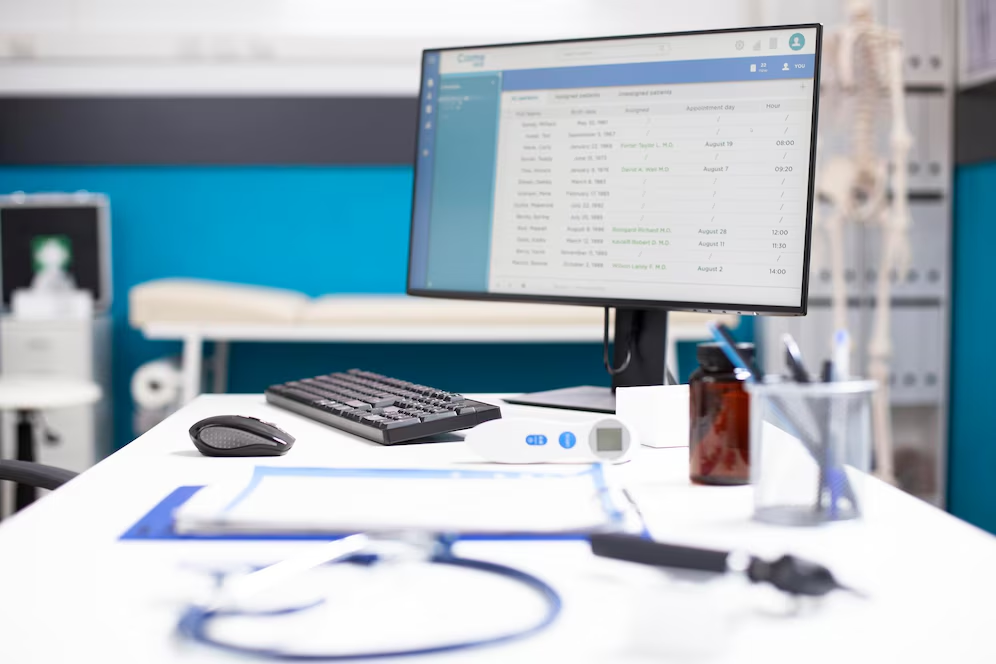Imagine this: You’ve treated the patient, documented everything, sent out the claim — but payment still hasn’t arrived. Days go by. The claim is either denied or delayed. The result? Your hospital accounts receivable (AR) get hit hard. You can consider your hospital accounts receivable as the money that you are still owed from your patients’ insurance companies. Keeping your hospital accounts receivable low should be your key priority as low accounts receivable means increased fiscal revenue. However, keeping accounts receivable low is not an easy job and this is where audits step in. But the real question is — should you audit before the bill is sent out or after? To know the answer, you must know what hospital accounts receivable audit process is and other vital components.
Understanding What is a Hospital Accounts Receivable Audit?
You can consider an accounts receivable audit process like a check-up measure for the financial health of your hospital. It helps you find errors, delays, and problems that block cash flow. Audits look at your claims, documentation, coding, and all the billing steps. The goal is simple: get you paid faster and more accurately, thus improving your overall accounts receivable drastically.
There are two main types of audits in hospital billing that enable you to improve your overall accounts receivable:
- Pre-bill audits – done before the claim is sent.
- Post-bill audits – This audit is done once the claims have been submitted and got denied or rejected somehow.
Both are important. But which one actually improves accounts receivable metrics more?
Let’s look at each one closely and know about their benefits and challenges:
What Are Pre-Bill Audits?
It is all about auditing before you submit the claim to the insurance company.
- If all documentation is complete.
- If the coding is correct.
- If authorizations are in place.
- If the charges match the treatment.
- If there are any compliance risks.
The idea is to catch errors early. Think of it as a “clean-up” step before hitting send.
Benefits of Pre-Bill Audits
1. Fewer Denials
Many denials happen because of coding errors, missing documents, or eligibility issues. Pre-bill audits catch these upfront.
2. Cleaner Claims
A claim that is accurate from the start has a better chance of being paid on the first try, thus helping you to see excellent cash flow and improved revenue.
3. Less Rework
Fixing errors before billing means your team doesn’t waste time fixing them later. Less work on claims always leads your practice to enjoy less staff burnout.
4. Compliance Check
Pre-bill audits also help you avoid compliance issues like upcoding, unbundling, or missing patient consent forms.
Challenges with Pre-Bill Audits
- Takes Time: Adding an extra step before billing may slow things down.
- Requires Skilled Staff: You need experienced auditors or software that can flag issues properly.
What Are Post-Bill Audits?
It is when after the claim has already been submitted for the review of:
- Claims that were denied or underpaid.
- Claims stuck in accounts receivable for too long.
- Trends in delays and denials.
- Patterns of coding or billing mistakes.
The goal is to learn from mistakes and recover money.
Benefits of Post-Bill Audits
1. Find Revenue Leaks
Post-bill audits often uncover claims that were undercoded or missed charges and got denied. It is still the money that you can recover.
2. Improve Future Processes
By reviewing what went wrong, hospitals can change billing processes or train staff better.
3. Focus on High-Impact Claims
Post-bill audits allow you to target high dollar claims or those that are aging in accounts receivable.
4. Insurance Follow-Up
These audits help your team figure out why payers are delaying or denying payments — so they can act fast.
Challenges with Post-Bill Audits
- It’s Reactive: You’re fixing errors after the damage is done.
- Can’t Always Recover: Some underpayments or denials are very hard to reverse after a certain time, especially those that go beyond 120 days.
- Takes Time to Track and Fix: You need follow-up teams, appeals, and systems to track progress.
Post-bill audits are critical, but they can’t always undo the harm caused by bad data or missed steps early on.
Now, you must know which type of billing-audit improves your hospital accounts receivable management better-
Pre-billing or pos-billing audit: Which One Improves Hospital Accounts Receivable Service Metrics More?
Let’s look comparison between at the core pre-billing and post-billing audit impacts based on the accounts receivable metrics:
| AR Metrics | Pre-Billing Audit Impact | Post-Billing Audit Impact |
|---|---|---|
| Accounts Receivable Days | Decreases | May not improve unless recovery is fast |
| First Pass Resolution Rate | Increases (clean claims go through) | Little impact as you may use the identified patterns in your upcoming pre-billing audits |
| Denial Rate | Drops significantly | Only helps with appeals |
| Net Collection Rate | Improves over time | Improves with recovery success |
| Cost to Collect | Goes down with fewer errors | Can increase due to rework |
As you can see, pre-bill audits have a stronger effect on preventing problems. They help reduce denials, improve clean claim rates, and speed up payments.
Post-bill audits are great for learning and fixing, but they’re too late to prevent delays. So, the best approach would be combining both to improve your hospital accounts receivable. You don’t have to choose one over the other. The best hospitals do both.
Here’s how a strong system works:
- Pre-Bill Audit First: Catch obvious errors, missing codes, and compliance risks before billing.
- Post-Bill Audit for Exceptions: Review denied claims, track slow-paying accounts, and study trends to fix future errors.
- Train Your Team: Billing and coding staff need regular updates on payer rules and documentation standards.
- Monitor accounts receivable Regularly: Track accounts receivable by aging buckets (0-30, 31-60, etc.), and audit claims stuck in the 60-90+ day range.
Finally: Prevention Is Better Than a Cure
In hospital billing, what you don’t catch today becomes tomorrow’s denial. Pre-bill audits help you stop those mistakes before they slow down cash flow. They keep your accounts receivable clean, claims accurate, and staff alert. Post-bill audits are still necessary. They help you recover what’s lost and guide better practices. But they shouldn’t be your first line of defense. So, which one drives better hospital accounts receivable metrics? Pre-bill audits win — hands down.
But the real power comes when you use both wisely and this is exactly where hospital accounts receivable outsourcing could be the best decision for you. A professional accounts receivable management company has experts who know what it takes to leverage both the pre and post-billing audit processes to ensure minimized delinquent accounts and excellent financial outcomes at the end of the fiscal year. So, what are you waiting for? Hire a professional hospital accounts receivable management solution now and see your hospital thrive!
Learn More:
Outpatient Vs Inpatient Hospital Account Receivable: Understanding What’s at Stake
Learn why inpatient hospital accounts receivable need more focus than outpatient AR to protect your hospital’s cash flow and financial stability.



